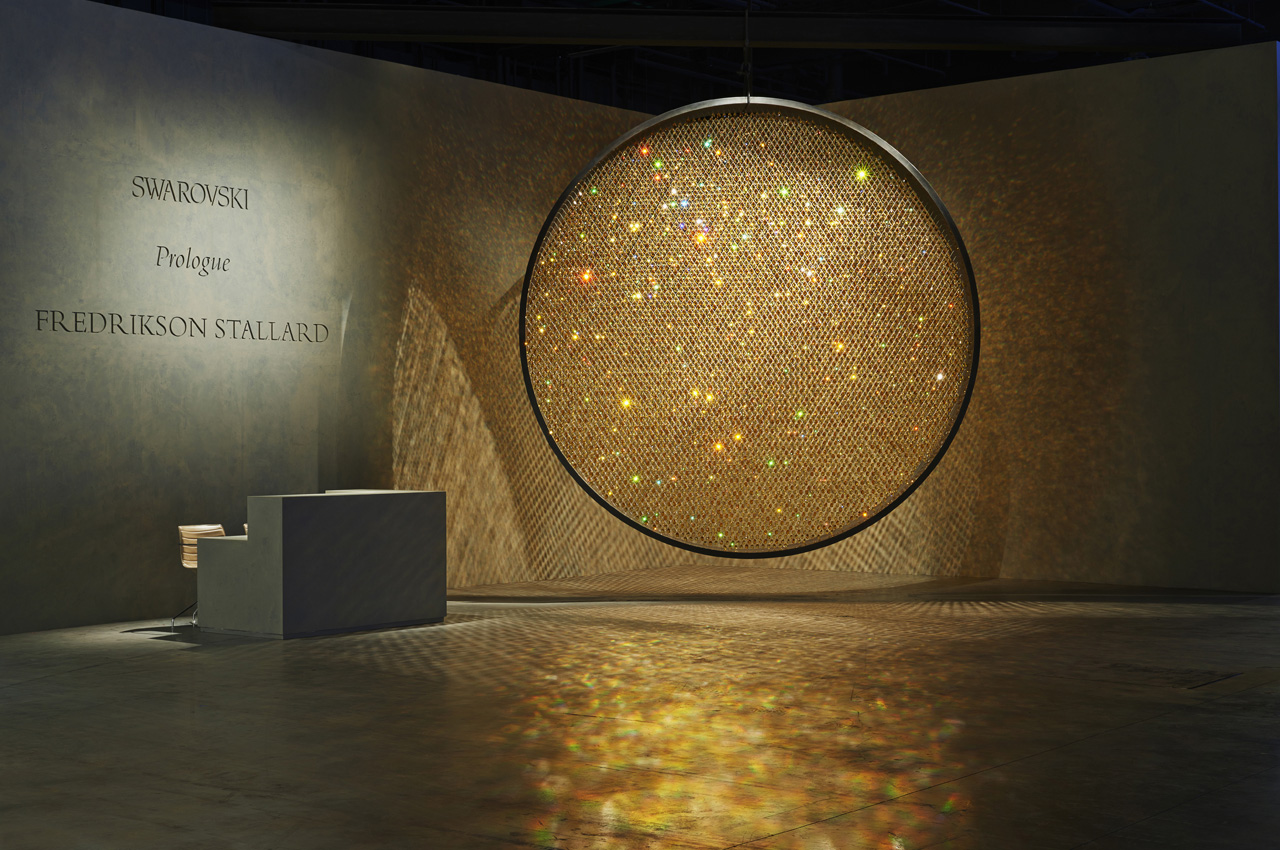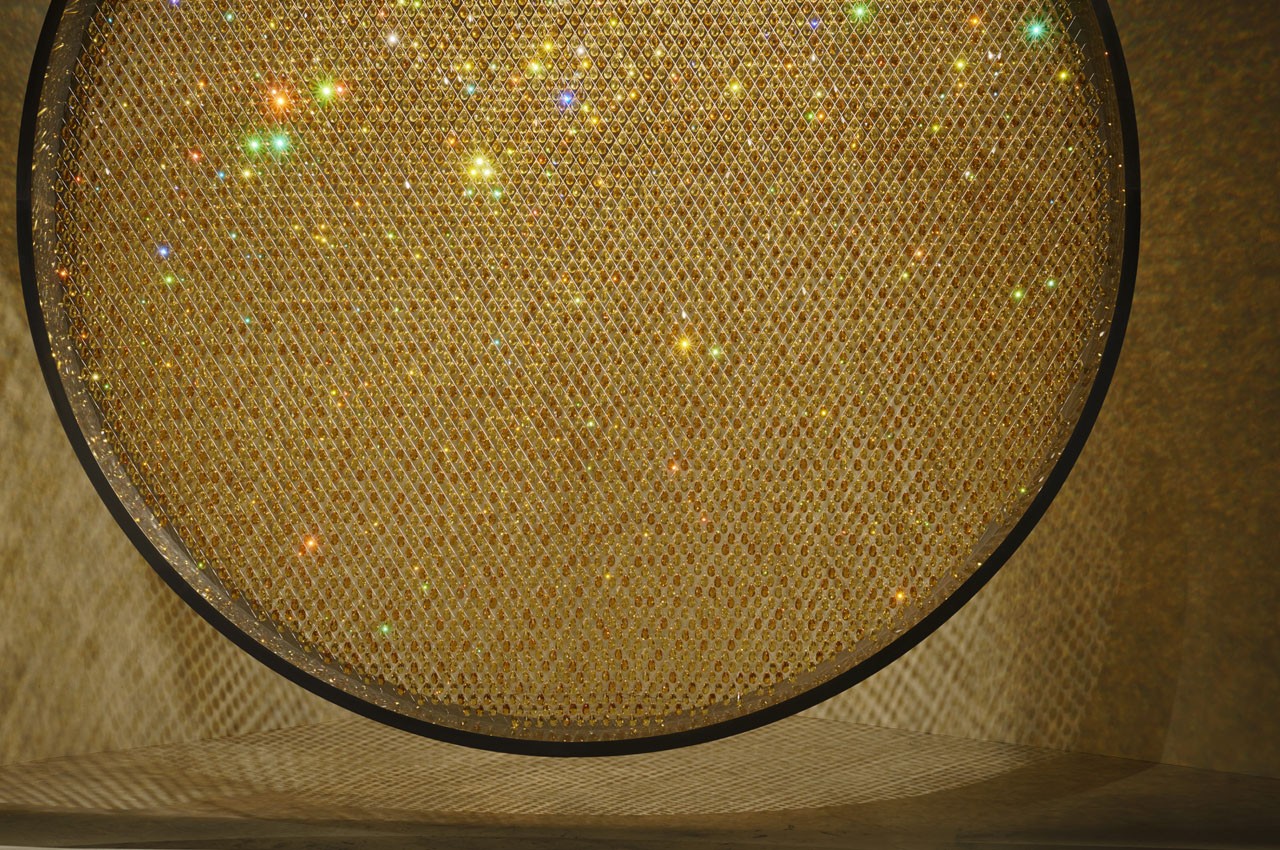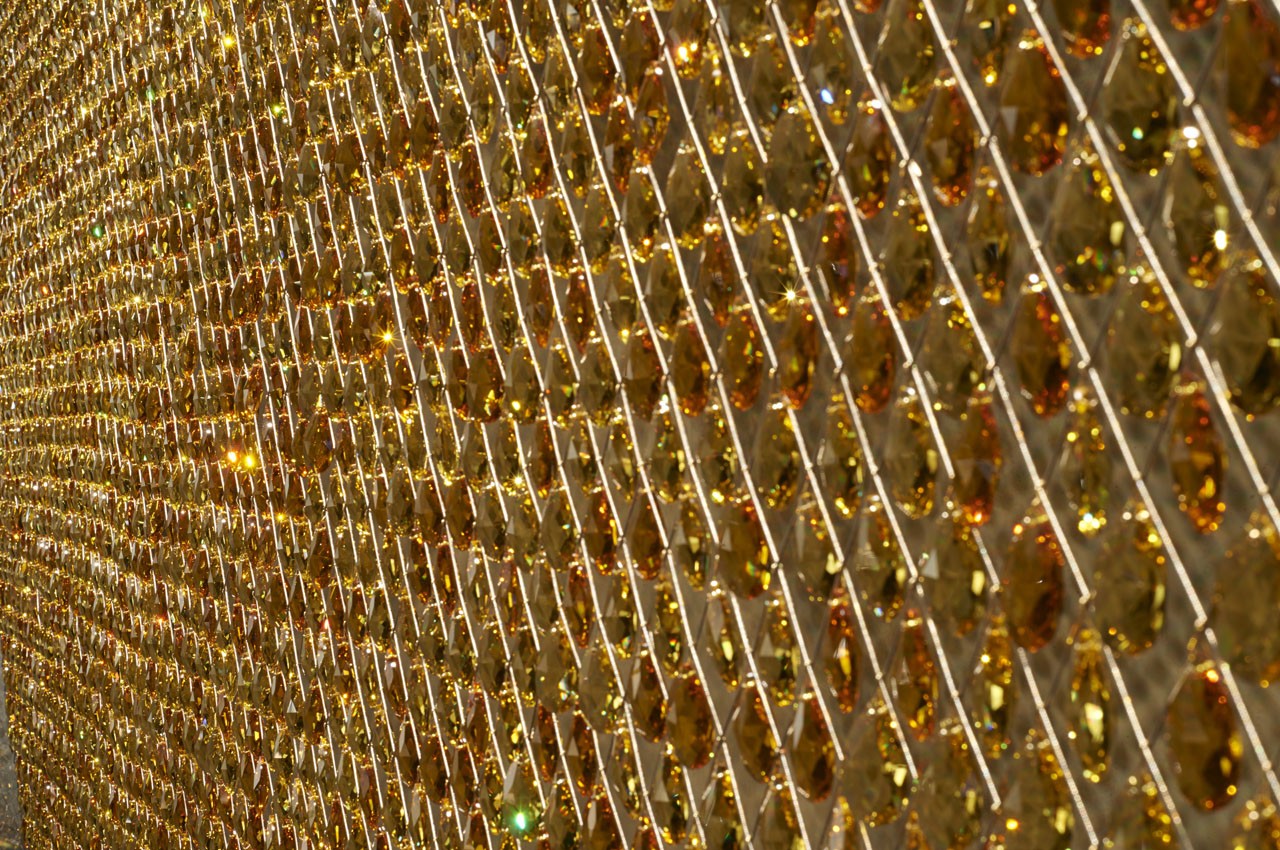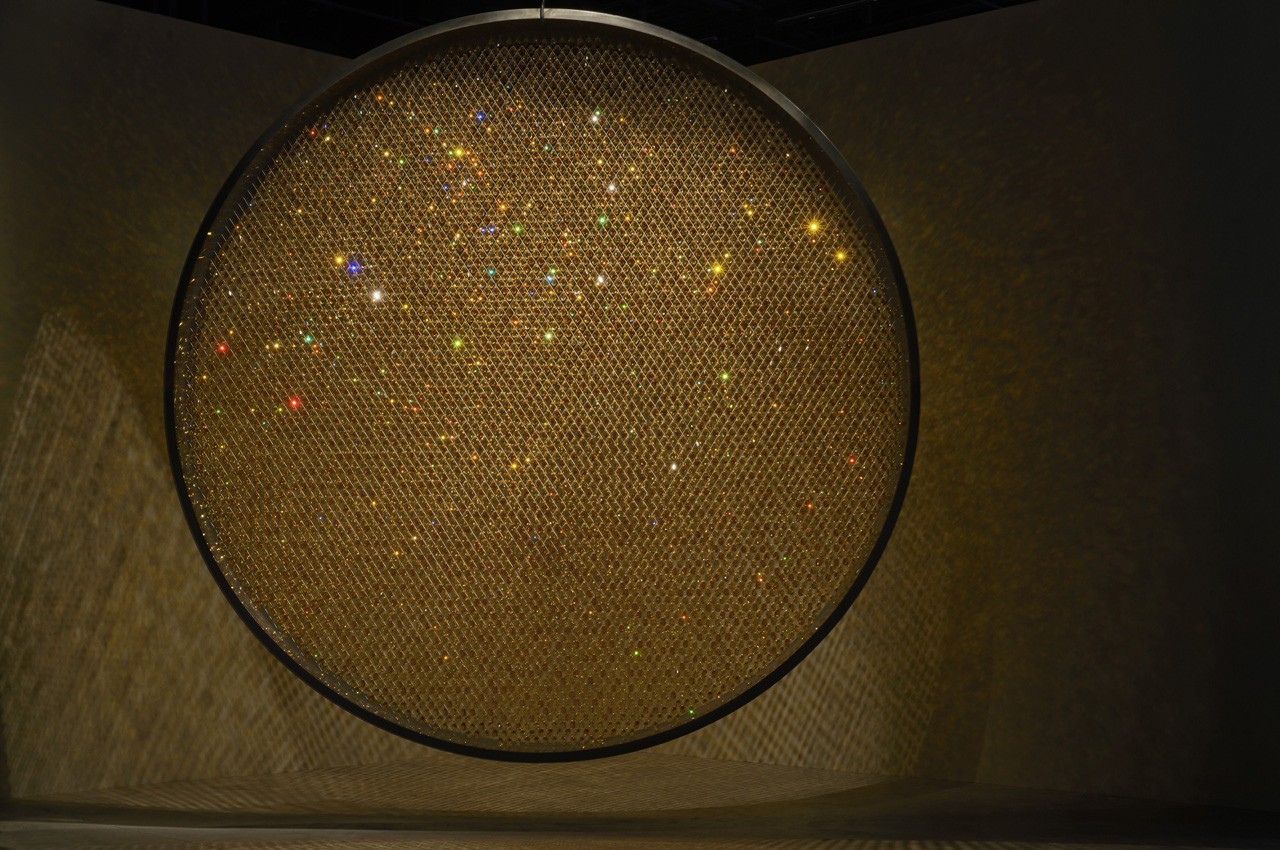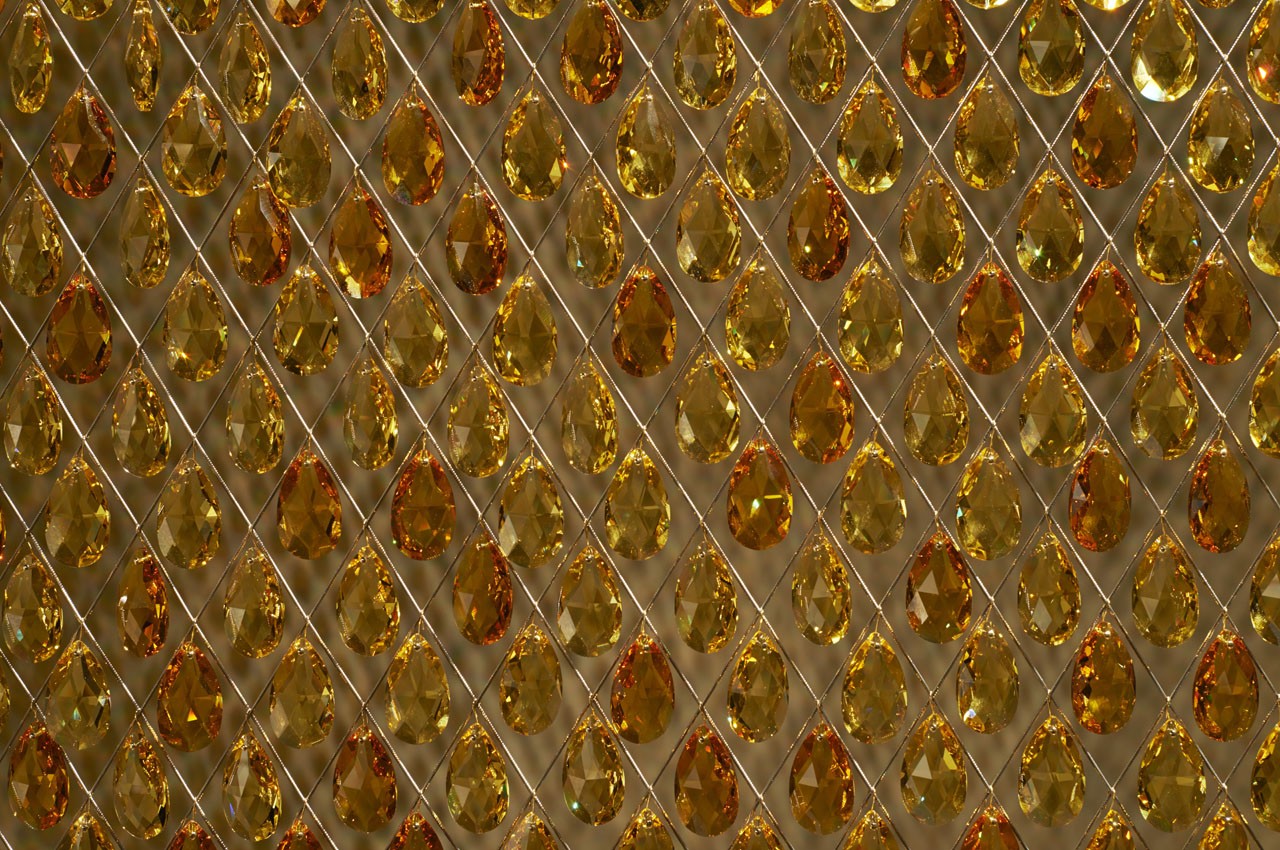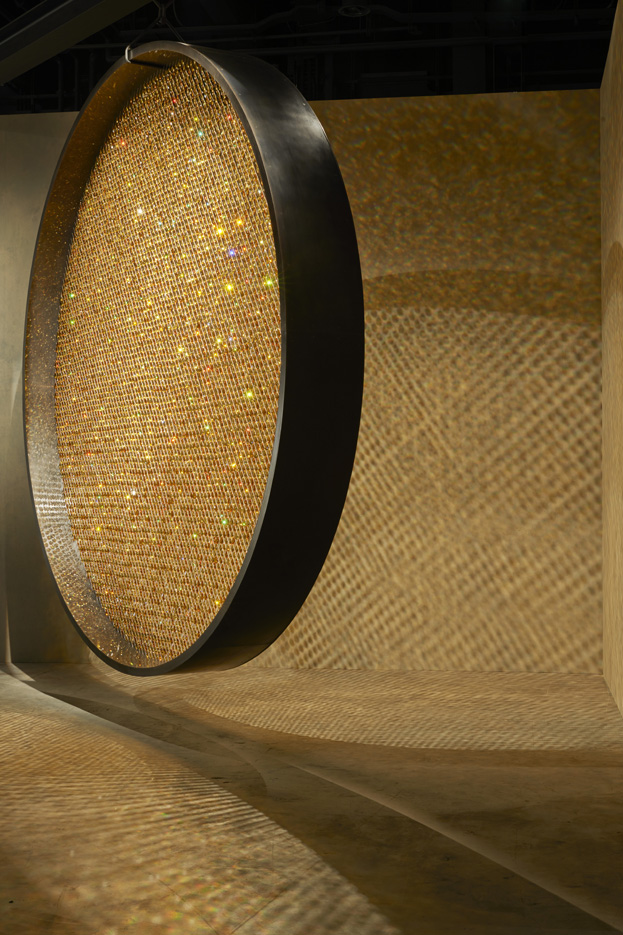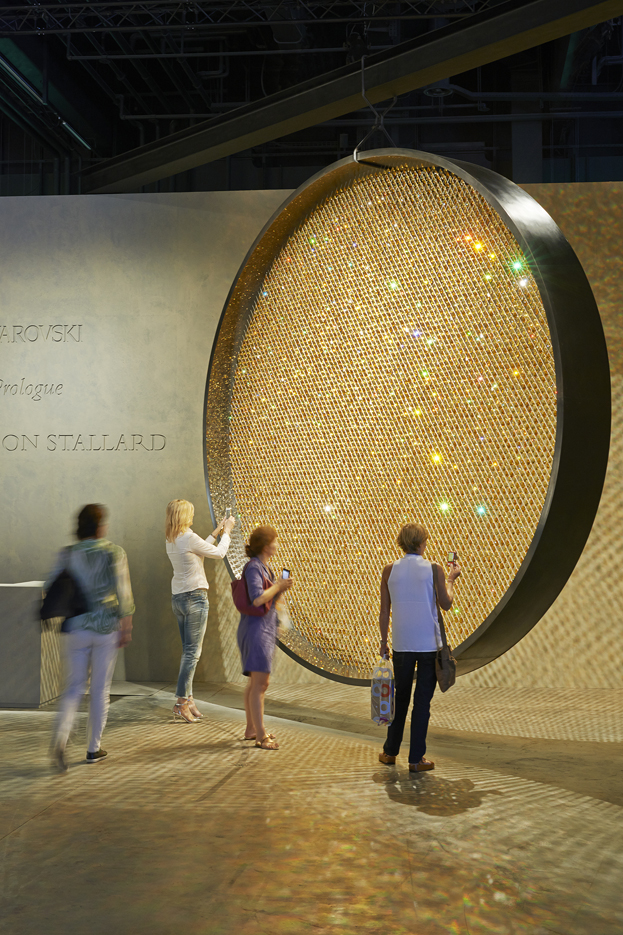Prologue II
Date
2014
Material
Patinated Steel, Swarovski Crystal
Dimensions
L400 x D50 x H400cm (L157 x D20 x H157in)
The use of the Assyrian Nimrud lens, which dates from 750 to 710 BC, has been debated since its discovery. This circular piece of rock crystal could arguably be the oldest lens used by man to magnify or indeed concentrate the sun’s rays to start a fire. The Greek playwright Aristophanes refers to such a device, known as a burning-glass, in his play The Clouds considered the first written documentation of this invaluable tool. But it was once the optical properties of the lens were harnessed that it was no longer just a survival implement, but a medium that could channel unimaginable possibilities.
Positioned between two sheltering buildings stands Prologue, a monumental circular form that draws you into the heritage site of the former Police Married Quarters. Larger than life, this commissioned sculpture by Fredrikson Stallard combines a steel frame with thousands of topaz crystal droplets. Simple in its mimicry of the sun, yet complex in its endless nuances, Prologue’s presence activates the courtyard, refracting and reflecting light in every which way.
Sited in an area that has constantly been rebuilt and reborn, Prologue embodies both literal and metaphysical connotations. The external structure that rests on top of two industrial beams is fabricated in mild steel. Patinated to express its natural process of ageing, its materiality also references the construction renaissance the area has been under. The circle is the end and the beginning, a cycle of infinite potential. And the work’s title is itself a prefix, alluding to what is yet to come. Scale is paramount to Prologue, it’s intended to dwarf the viewer yet not be overbearing. Its dazzling beauty created by the luminous veil of crystals generates awe and ignites a primeval response. Here, light translates into a sculptural medium becoming an illusory phenomenon. During the day, Prologue will be governed by natural daylight, yet at night, an artificial lighting design will illuminate the sculpture so it transforms into the moon. At no point will it ever be the same. Ever changing and adapting Prologue”s sensory aspect will be heightened.
Just as the optical lens had a profound effect on the development of art, with the ability to capture our imagination, Prologue emphasises the new beginning of this promising creative industries landmark, encapsulating the scope and scalability of renewed vision. – Freire Barnes
